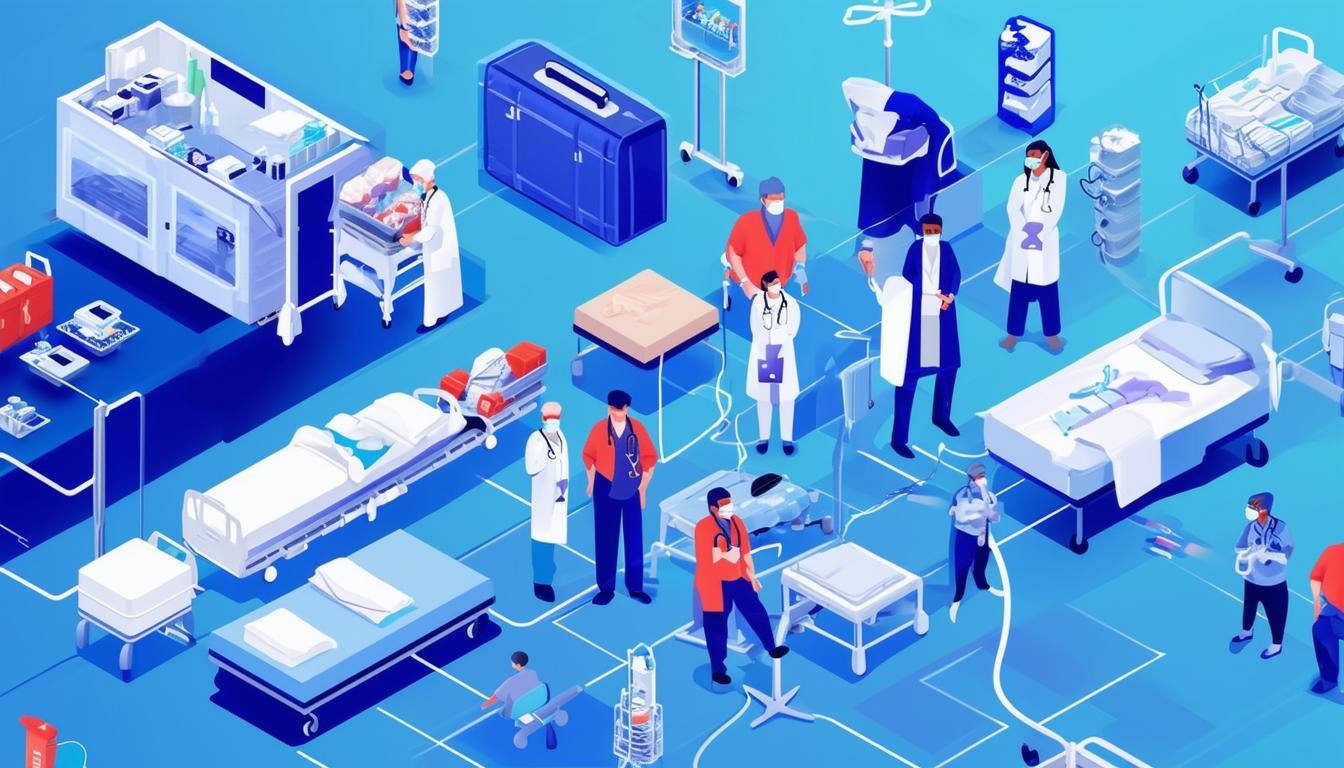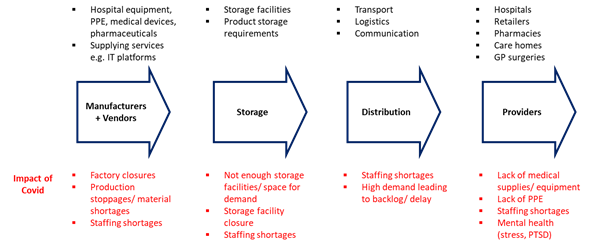Switzerland (Head Quarters)
IDR Medical Switzerland
Austrasse 95, CH-4051 Basel, Switzerland
T:
+41 (0) 61 535 1109
UK
IDR Medical UK
Unit 104 Eagle Tower, Eagle Tower
Montpellier Drive, Cheltenham, GL50 1TA
T:
+44 (0) 1242 696 790
USA
IDR Medical North America
225 Franklin Street, 26th Floor
Boston, Massachusetts 02110, USA
T:
+1 (0) 617.275.4465

5 Ways That Covid-19 Has Impacted Healthcare
Covid-19 has put challenges and a spotlight on healthcare systems to a scale that we have not seen before.
In this month’s blog, our experts at IDR Medical explore some of the ways in which Covid-19 has impacted healthcare, and how healthcare systems look to respond and move toward a better “new normal.”
Here are five ways that Covid-19 has affected the healthcare sector:
1. Impact on care delivery
The pandemic has acted as a catalyst for significant and rapid changes in how healthcare services are delivered. There have been many service shifts needed to adapt to life in a pandemic, however some of the most widespread include:
- a shift of delivering care out of hospitals and into communities
- a shift towards digital, remote care (telemedicine)
The benefits of shifting towards community based and digitalised care have been realised during the pandemic. Furthermore, the infrastructure to support these service shifts is now better implemented than prior to the pandemic [1].
2. Impact on the healthcare workforce
Staff exposure, illness, mental health struggles and burnout have created more pressure on already stretched and understaffed workforces during the pandemic. Most health systems were vastly unprepared for the staffing needs that arose during the pandemic.
For example, the NHS reported a shortage of 84,000 staff [2]. Hospitals in many US states including Florida and Oregon announced critical staff shortages during the pandemic. Crisis capacity strategies need to be employed in order to mitigate future staffing shortages during a crisis.
The pressures and stresses on health systems over the last year(s) have taken their toll on the wellbeing of staff. Following the pandemic, improved support programs for staff wellbeing should be implemented to not only improve staff retention and satisfaction, but also support better patient care.
3. Financial impact
Beyond the immediate Covid-19 impact on healthcare, the pandemic has caused devastating damage to healthcare system and government finances. The pandemic has caused many financial challenges which can be broadly summarised as:
- hospitalisation costs
- cost of cancelled and forgone services which impact hospital revenue
- cost of PPE and of implementing infection control policies
- cost of additional health care worker support
The negative impacts of these financial challenges are likely to persist over the coming years and have forced healthcare leaders into aggressively managing their budgets alongside their current payer service contracts/ relationships.
Service providers will have to continue to collaborate with healthcare systems and governments to ensure low-cost high-quality care whilst navigating a new financial landscape.
4. Impact on the Supply Chain
The pandemic has caused major disruption and strain on worldwide healthcare supply chains. Many items, including personal protective equipment (PPE), ventilators, sanitising supplies, testing kits and other hospital equipment, were in short supply.

(Figure 1. The impact of Covid-19 on healthcare supply chains [3])
Research has shown that traditional supply chain lines were heavily impacted by Covid in the following ways:
- Factory closures/production stoppages
- Transportation disruption
- Workforce limitations/staffing shortages
The pandemic has highlighted how current supply chains are insufficiently prepared for times of crisis. However, manufacturers, governments and healthcare systems can learn valuable lessons from the pandemic.
Investment into enhancing current supply chain models is key to ensuring healthcare systems are better prepared in the future [4].
5. Healthcare inequalities
At a global and regional level certain groups have experienced disproportionate levels of exposure and death due to the virus. These groups include ethnic minorities, those on low incomes, disabled people, care home residents, and those in key worker roles [5].
In order to support sustainable global recovery, there needs to be commitment and clear action to reduce the inequalities that have been exposed by the pandemic.
This should be a central focus for healthcare institutes and governments, and should be reflected in how they are constituted, measured, and held to account
In conclusion…
There is no doubt that Covid-19’s impact on healthcare has and will continue to transform the sector – and more so than any other. In some ways this could be a silver lining, as adaptions to healthcare planning and delivery could lead to enhanced and improved patient care.
To find out more about how IDR Medical can help your business understand developments within the medical market, please do not hesitate to contact us to arrange a discussion to understand how we can assist you.
References
- Lewis, R., Pereira, P. and Thorlby, R., 2020. Understanding and sustaining the health care service shifts accelerated by COVID-19 | The Health Foundation. [online] The Health Foundation. Available at: <https://www.health.org.uk/publications/long-reads/understanding-and-sustaining-the-health-care-service-shifts-accelerated-by-COVID-19>
- NHS, 2020. NHS Workforce Statistics – June 2020 – NHS Digital. Available at: <https://digital.nhs.uk/data-and-information/publications/statistical/nhs-workforce-statistics/june-2020>
- Vaish, K., 2020. Impact of the coronavirus pandemic on the supply chain in healthcare | British Journal of Healthcare Management. British Journal of Healthcare Management. Available at: <https://www.magonlinelibrary.com/doi/full/10.12968/bjhc.2020.0047>
- Mahmoodi, F. and Blutinger, E., 2021. COVID-19 and the health care supply chain: impacts and lessons learned.
- Suleman, M., Sonthalia, S., Webb, C. and Tinson, A., 2021. Unequal pandemic, fairer recovery: The COVID-19 impact inquiry report. The Health Foundation, Available at: <https://doi.org/10.37829/HF-2021-HL12>

